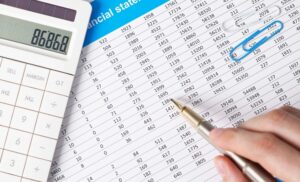Disclaimer: This article is highlighting practices that do not necessarily reflect all members of the accounting profession. It is designed to make business owners curious about their own situation and encourages them to ask specific questions to avoid being taken advantage of. It is not intended to discredit a profession as many good “apples” take their obligations toward their clients very seriously.
It is getting close to that time of the year again! Your tax accountant rings you up or sends you an email that your Business Activity Statement is about to become due.
Do you actually know what your BAS liabilities are at this stage?
Most will say “No, that’s what the tax agent will determine and tell me.”
Wrong!
Unless your tax accountant is also doing all your bookkeeping, you should be able to tell at any stage what your tax dues are.
That information should be ready to go in your accounting system as long as you are up to date with your bookkeeping – no professional knowledge needed.
But often, tax accountants treat this information as a secret that only they can determine. Like a surprise cake that you are anxiously waiting on to see how it will look, and then, ta-dah, there it is!
Let’s unpack the issues here one by one.
Firstly we are talking about BAS.
BAS is an Activity Statement like IAS, but often more hurtful.
Activity Statements collect all the tax information from your business dealings.
The most common ones being: how much GST you have charged; how much GST you have prepaid with your business purchases; and how much tax you have to pay that you have withheld from your staff wages.
All this is readily available in your accounting system, with up to date information. There is nothing to calculate, nothing to adjust. Not like income tax.
But what is the tax accountant then charging for?
Any tax agent has the obligation to check your books before they lodge Activity Statements as they act on your behalf.
That means they run reports and cross reference all your entries against it. This was a very important task when we did not have software as we do now. Nowadays, software is making all bookkeeping easy and preventing most entry mistakes as long as it is set up professionally.
I would like to let you in on an insider secret here:
Software has become so good that lots of accountants skip this task for clients whose books seem in order and only run the checks once a year.
If they find mistakes, they can get adjusted with the last BAS of the year. The other three BAS are basically “Cash Cows”.
Secondly, as long as you use your accounting software correctly and are up to date with entries (at least up to the BAS date) you can look for a menu item in your software that is usually called “Activity Statement” in Xero, “GST” in QBO or “Prepare BAS or IAS” in MYOB.
Here you get your BAS information directly from your books!
So, in this article, we have shared some of the best kept secrets in accounting about your tax obligations that should help you navigate a little easier.
But if you feel like you still need help, or lack the time to do it, we are more than happy to assist.
Contact AnConsult to gain control over your business!

